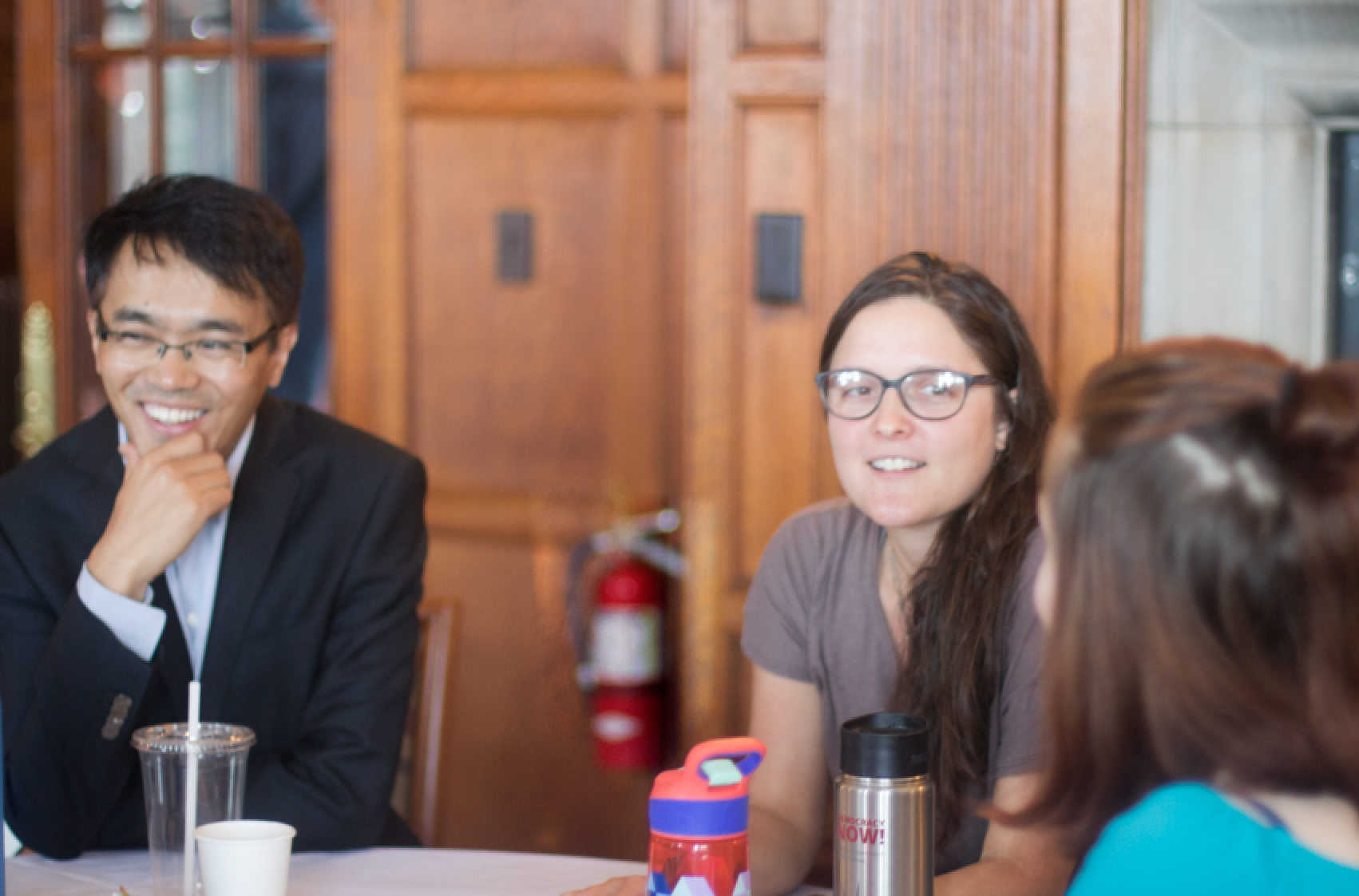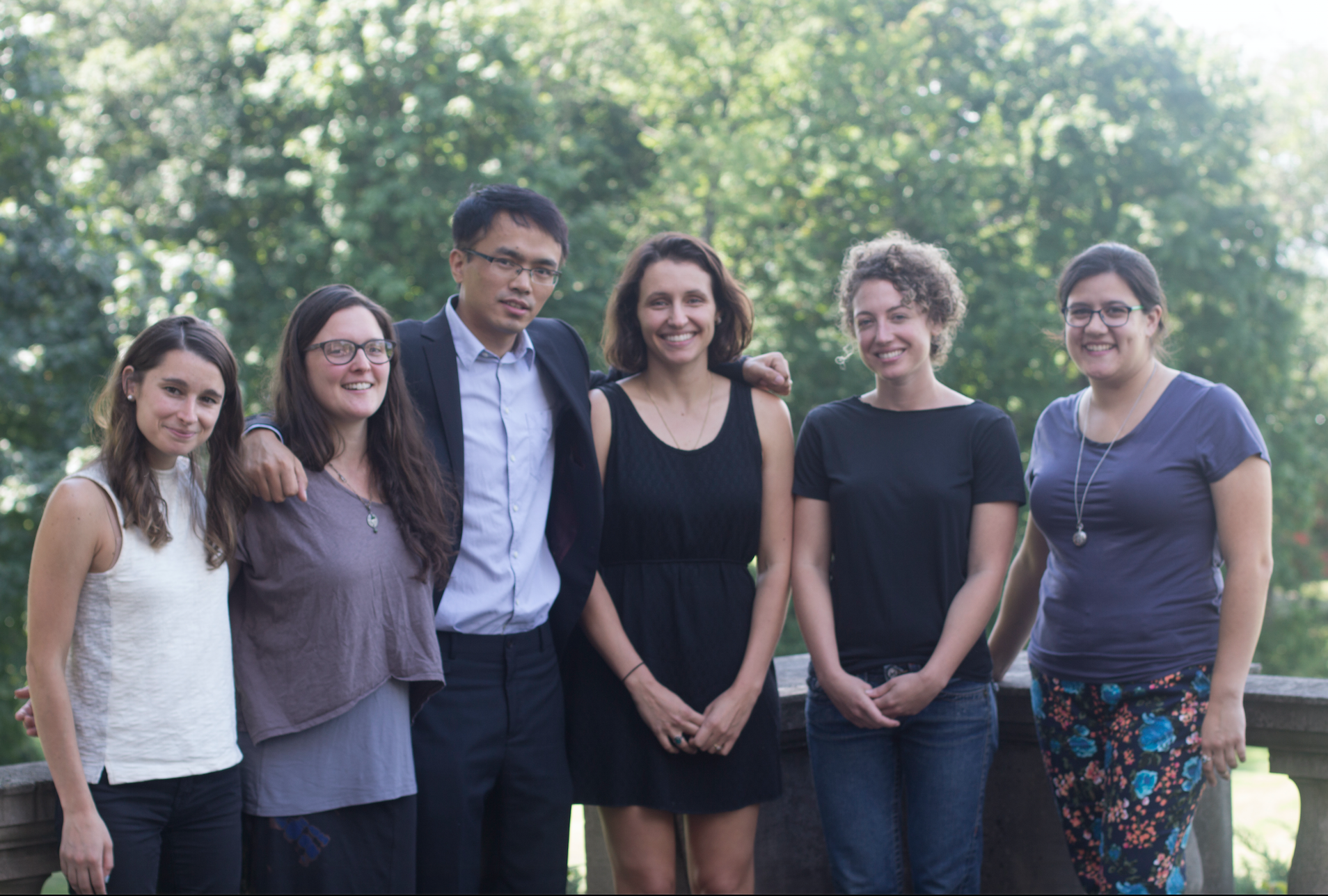
On Friday, August 26th, Bard Center for Environmental Policy (CEP) hosted its 6th annual Alumni/ae Panel. Participants included Serena Macintosh ’14, Rochelle March ’15, Natalie Narotzky ’12, Jessica Schug ’15, Ann Starodaj ’12, and Chad Tudenggongbu ’11. Current Bard CEP students and faculty were in attendance, as well as Bard undergraduate students and faculty.
Each alumni/ae discussed their personal backgrounds, what led them to pursue graduate work in environmental policy, why they chose to study at Bard CEP, and their post-graduation adventures and work experiences. Additionally, they detailed their extended professional internships that are part of the CEP curriculum and how those experiences, as well as their coursework, prepared them for pursuing careers related to environmental policy.
Starodaj started off the panel discussing her internship at the U.S. Environmental Protection Agency (EPA), which led to a job doing research and development. She currently works as the Director of Sustainability at Optoro where she focuses on reverse logistics for supply chain sustainability. “The deep expertise I gained [at Bard] really makes me stand out in the business world,” Starodaj said,
Schug, one of the more recent graduates, directly applies her policy background in her work as a Legislative Coordinator at the New York State Assembly. “I am able to use skills I gained in the program on a daily basis. I feel I have the practical knowledge to help make real change,” said Schug.
Due to the diverse foundational coursework, students graduating from the program are equipped for a vast range of jobs, as Tudenggongbu pointed out. “I appreciated the interdisciplinary approach. Almost all issues involve policy and data analyses, and Bard CEP really prepared me for this.” Tudenggongbu, who wrote his thesis on the ethics and environmental impacts of pika hunting in China, tied in this research years later as the Senior Renewable Energy Campaigner at Center for Biological Diversity. “My current work explores options for wildlife-friendly renewable energy through distributed solar. Solar installations that are built on existing structures and already degraded environments reduce the efficiency loss that is a result of long-distance energy transmission,” explained Tudenggongbu.
March, who was a Bard CEP/MBA double major, wanted to gain better fluency in economic literacy and interned at the National Resource Defense Council (NRDC). Now, as an Analyst at SustainAbility, March pointed out the value of having completed both the CEP and MBA programs. “I really learned how to analyze and diagnose problems, find solutions to these problems, and then communicate them to different stakeholders,” said March.
From a practical standpoint, as a Research and Data Coordinator for Transportation Alternatives, Macintosh puts her GIS skills to good use. But, beyond that, the CEP program instilled something more in her: “Patience. The CEP background, and working with lots of different entities, helped me learn to practice patience,” admitted Macintosh.
Narotzky, a “3+2” student, was an undergraduate at Bard when she heard about the option to get her Masters by staying just one extra year. “It was a no-brainer for me,” Narotsky said. “The opportunity to get my Masters degree at essentially no extra cost to what I was already paying to get my undergraduate degree made sense. I now not only have a broad understanding of what the sustainability landscape looks like, but I am also truly articulate in climate science.”
Following the panel, students and alumni/ae engaged in more intimate conversations as the alumni/ae dispersed to the different student tables, rotating and answering questions. We look forward to inviting alumni/ae back next year and continuing to foster the rich Bard CEP network.

